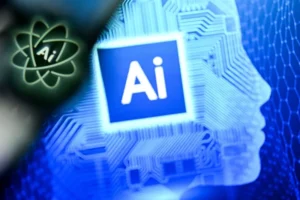
AI And The Pandemic
Kamal Kishor Singh, Technology Solutions Expert
The world was taken by storm when covid 19 hit and started to “nurture” in December 2019. Not long after, the disease was spread to every city and every lane, leaving its strong, sharp effects on the healthcare industry. Early and quick detection of COVID-19 is a challenging task for the medical community, but it is also crucial in stopping the spread of the SARS-CoV-2 virus. Prior attestation of artificial intelligence (AI) in various fields of science has encouraged researchers to come up with stable and efficient solutions and further address this problem.
Artificial intelligence played a vital and independent role in countering corona while helping gain knowledge about necessary information such as vaccine distribution, hospital management, drug discovery, financial aid circulation, clinical data insights, and covid diagnosis.
AI can help in mitigating the impact of the lockdown and in actively responding to this crisis. A very important method to evaluate the effect is rapid and random widespread testing to understand the pattern and identify hotspot zones to quarantine affected people. Apps like Arogya Setu were introduced, which show much of the user’s risk factor depending on their movement and proximity to infected or at-risk people, based on location-based mobile data using Bluetooth for generating alerts. The app alerts are accompanied by instructions on how to self-isolate and what to do in case someone develops symptoms that they need help & support. Similarly, DRDO’s AI brains launched SAMPARC App, which had created a technology-focused solution to track patients who are under quarantine.
Also Read: AI: An Essential component For Security And Surveillance
The pandemic generated tons of data every day. Patient data, CT scans, MIT reports, chest X-rays, blood results, genetic data, and more. Human experts can barely scratch the surface of this data. Though fortunately enough, AI algorithms can process these insights at scale and analyze patterns to speed up diagnosis and give tips on vaccine development and treatment. Pharmaceutical firms, medical institutions, hospitals, and healthcare technology providers who adopt AI tools will boost both profits and market share.
The gold standard for diagnostic tests for COVID-19 is RT-PCR. However, RT-PCR does produce false negatives making it not the most trusted method to verify the disease. A study concluded that chests are far more sensitive to CT scans than to RT-PCR tests (98 vs. 71%, respectively). Using AI, we can train algorithms to produce and analyze chest computed tomography (CT) scans with vascular thickening, spider web, bilateral and GGO, and more complex patterns.
To add even further to this, we can make these algorithms with crazy high-end dimensional features even radiologists can’t handle, such as wavelet and texture information allowing pneumonia caused by covid to be distinguished early on and be given the right cure. Researchers have succeeded in developing a machine model that can diagnose corona from chest X-rays 10 times faster than human radiologists and up to 6% more accurately.
While AI is not a silver bullet, researchers have used AI to extract more reliable and quicker reports from medical data. This has led to faster vaccine development, equal accessibility, and a strong belief in better future treatments.
About the Author:
Kamal Kishor Singh is a technology enthusiast based in Muscat, Oman. He’s currently working as a Projects Delivery Manager for a major digital technology company in the Middle East.
With 18 years of experience in AI/ML based data analytics and automation, Kamal has developed several first-in-the-region digital products for government, banking, and telecom clients.
He has a keen interest in mentoring fresh talent and developing the tech start-up ecosystem in India and the Middle East.
Kamal has a bachelor’s degree in technology from NIT Allahabad and an MBA from IIM Calcutta.
Connect with Kamal on his LinkedIn
Next Article








